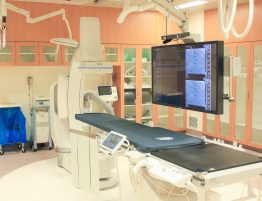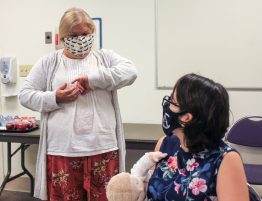

During this time of COVID-19, people who have underlying conditions may be at a higher risk of catching the disease or facing other health complications. This is especially true for those with heart-related conditions or diseases such as:
- High blood pressure
- Coronary heart disease
- Previous stroke
- Congenital heart defects
Due to these factors, it is important to take extra care to maintain heart health and to reduce the likelihood of being infected. “It is critical to continue managing heart care and speaking with your provider during this time to stay healthy and reduce chances of any complications,” said Peter Fung, M.D. and Medical Director of Cardiology at Beverly Hospital.
Ways You Can Protect Yourself
- Do not ignore the signs of heart attack, cardiac arrest, or stroke.
- Seek immediate care at your nearest emergency room if you begin to experience the following common signs:
- Heart attack: Chest discomfort, discomfort in other areas of the body, and shortness of breath
- Cardiac Arrest: Sudden loss of responsiveness and no normal breathing
- Stroke: Face drooping, arm weakness, and speech difficulty
- A major consequence of delaying care is that the body could be left in far worse conditions including to the point of life-threatening. Since the beginning of the pandemic, emergency rooms have seen a decrease in admissions. A main reason for this decline may be because patients are scared to visit for non-COVID related issues because they fear they will contract COVID-19 during their stay. Rest assured that hospitals, such as Beverly Hospital, have procedures and policies in place to keep all who enter safe.
- Seek immediate care at your nearest emergency room if you begin to experience the following common signs:
- Be sure to continue taking any prescribed heart medication as you normally would.
- Stopping or changing how often you take your heart medications without consulting your physician may lead to endangering your health. There has been a rumor claiming that certain heart medications impact COVID-19 risk. This rumor has been debunked as stated in a joint statement from the American Heart Association (AHA), Heart Failure Society of America, and American College of Cardiology.
- See if you can visit via telemedicine instead of in person.
- If you have medical appointments scheduled, telemedicine is a potential option which can help reduce your potential exposure to the virus. It is a medical visit through video chat or a phone call.
- Talk with your cardiologist if you test positive for COVID-19.
- This may impact your current treatment plan therefore you should communicate and see what changes need to be made.
- For more heart health resources in regards to COVID, visit the AHA’s website.
Prevention Is Key: How To Avoid Infection
According to the Centers for Disease Control and Prevention, the best way to prevent COVID-19 is to avoid being exposed to the virus. To do that:
- Clean your hands often. Use soap and warm water whenever possible. Wash your hands for at least 20 seconds before drying.
- Avoid other people as much as you can. Choose to stay at home whenever possible. If you must go out, stay at least 6 feet away from others.
- Wear a cloth face mask in public. Your mask should cover your mouth and nose. This helps protect other people in case you are sick and don’t know it yet. Remember that a face mask is not a replacement for social distancing.
- Avoid touching your eyes, nose and mouth.
- Regularly clean and disinfect high-touch areas in your home. These include doorknobs, kitchen counters, phones and light switches.
- Avoid being around sick people.
- Ask others in your household to follow these same guidelines. It’s important for them to understand that their actions affect your health and well-being.
- Many states have begun lifting stay-at-home protection orders. If yours has, continue acting as though the rules are still in place. Remember: It’s important to limit contact with others outside your household to avoid infection.
Sources: American Heart Association; Cleveland Clinic








